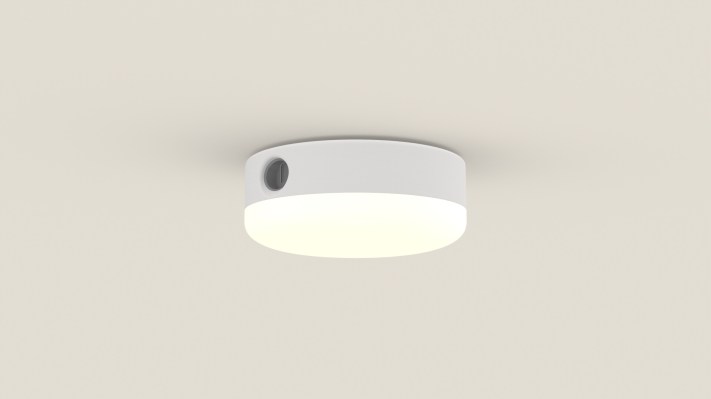Baidu’s DuerOS is essentially China’s Alexa. Over the course of the last few years, the company has built a voice assistant and an ecosystem of hardware partners that, for the most part, cater to the Chinese market. At CES this week, the company talked a bit more about its own first-party smart speaker: the oddly compelling Raven H, which looks nothing like what you imagine a smart speaker would look like. In addition, though, it also showed off the popIn Aladdin, a dome light with a built-in projector that the company specifically designed for the small apartment you find in countries like Japan.
Baidu developed the light/projector together with smart projector maker XGIMI and Baidu Japan’s popIn brand. It’s kind of ingenious when you think about. In a small room, you may not have the necessary space for a projector and speaker, but with the Aladdin, you get both, plus a voice-enabled smart speaker that hangs from your ceiling.
[gallery ids="1585193,1585192"]
The Raven H, too, is similarly unusual in that it looks like a stack of LEGO bricks, but with a thin, removable top that functions as a standalone voice assistant with a touch-enabled, highly low-res screen on top.
That removable display also fits on the even odder Raven R, which is a robot with an articulated arm that can dance to your music and, the company told me, locate you in space and always aim its microphone in your direction as you move around the room. There seems to be more to this, but the Raven R isn’t quite ready for prime time yet and won’t go on sale until later this year.
Together with its partner Little Fish, Baidu also brought an Echo Show-like smart display to CES, as well as a smart lamp from Sengled.
As Kun Jing, the general manager of Baidu’s Duer business unit told me, the company is looking to Japan for its first major international expansion of DuerOS because it already optimized its assistant for the acoustics of small rooms. It doesn’t look like Baidu is planning to bring its software and hardware to the U.S. anytime soon, though. Jing argued that this isn’t so much a question of language support as that Baidu doesn’t think its products will work well in large American homes.

